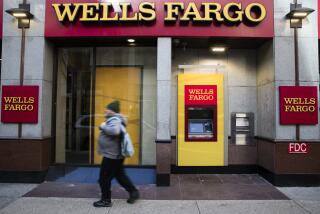Fewer Dividends Increased
- Share via
Fewer U.S. companies raised cash dividend payments to shareholders in August than in the same month a year earlier, suggesting that some chief executives turned wary about parting with corporate savings.
A total of 118 companies increased their dividends last month, down 24% from 155 in August 2003, according to research firm Standard & Poor’s. Dividend increases also were lower in July than a year earlier.
The last two months mark a change from the trend of the previous year. Since May 2003 -- when Congress cut the maximum personal tax rate on dividend income to 15% from 38.6% -- many firms have responded by sharply raising their payouts.
The trend of higher dividends coincided with a boom in corporate earnings as the economy rebounded. Dividends typically are paid directly from profit.
The new reluctance to raise dividends could reflect corporate managers’ concerns about the health of the economy and a possible slowdown in profit growth, analysts said.
“When the profit cycle decelerates, companies don’t like to increase their fixed costs,” said Richard Bernstein, chief U.S. market strategist at Merrill Lynch & Co. in New York. Companies aren’t obligated to keep their dividends at any particular level, but shareholders generally expect that their payouts won’t be decreased.
It’s possible companies are withholding higher dividends in favor of greater capital spending, analysts said.
Some companies also may be concerned that a victory by Democratic Sen. John F. Kerry in the presidential election could mean a rollback in the dividend tax cut, said Joseph Lisanti, editor of S&P;’s Outlook investment newsletter in New York.
Given the uncertainty, company managers may feel that it makes more sense to wait until after the election before deciding whether to boost dividend payments, Lisanti said.
More to Read
Inside the business of entertainment
The Wide Shot brings you news, analysis and insights on everything from streaming wars to production — and what it all means for the future.
You may occasionally receive promotional content from the Los Angeles Times.










